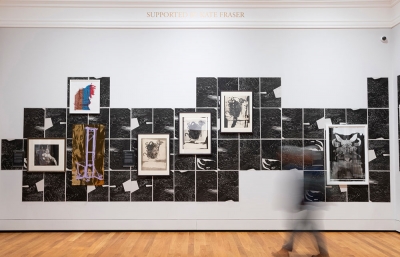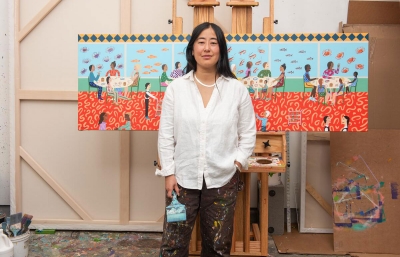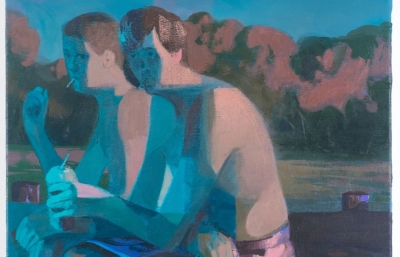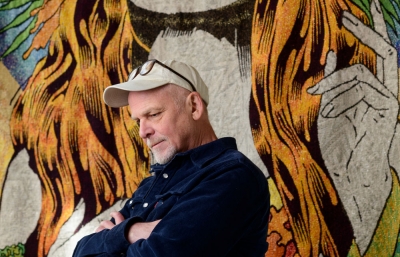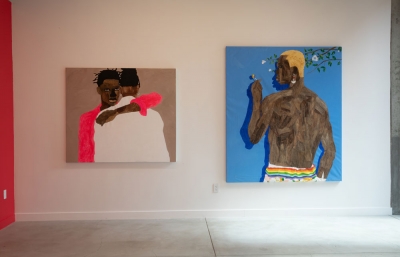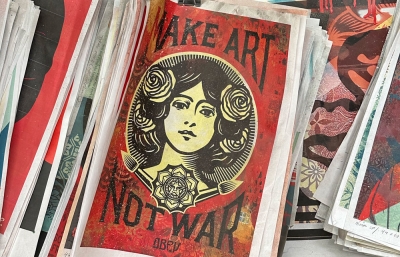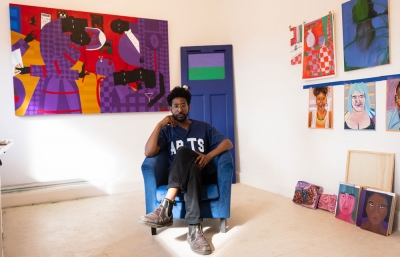"On March 12, I arrived in São Paulo after 10 days in Espapona, Spain," Alex Senna reports from the Brazil’s most populous city. "From the airport, I came straight to my house, and since then, I practically didn't leave. So, it's been three months of confinement so far." As the global pandemic progresses in certain regions, the number of registered cases propelled the largest country in South America to second on the list of most affected countries. Knowing this, it felt like it was time to check with a couple of our friends about the situation there.
First to respond was Alex Senna, whom we've featured many times in the past. Focusing on portraying his fellow Brazilians as bold black and white silhouetted figures to portray a bold drama, he simultaneously captures the color and vibrancy of the society. With the landscape around him seemingly being drained of its typical life-affirming tincture and energy, we were keen to hear about his take on this period and how it affects his creative practice. 
"I do not know where to start. Seeing that the mood was already kind of strange back in Spain, I returned to São Paulo quite apprehensive," he relates about the sudden shift in vibe. "The idea of repetition, waking up and being confined to your home, doesn't work very well. It is distressing and difficult, especially when I remember that I live in Brazil."
“In Jair Bolsonaro's Brazil (current President), rights are lost every day. There is rampant deforestation, a ministerial team made up of military men, deniers, clowns, flat earthers and conspiracy theorists. With the pandemic advancing, it is almost impossible, at least in my case, to focus on something and not get lost for hours on the Internet, torn between the virus and the president's madness. In other words, in the middle of the pandemic, knowing that Brazil has a serious problem of social inequality, we all find ourselves in the middle of a political crisis. Our little dictator is spoiled and spiteful, and his government ignores empathy or science and insists on pushing chloroquine through the throats of Brazilians. I believe that periods of crisis result in changes, and I hope and try to act in that direction. But as long as this whole structure is not disjointed, we continue as we are—BAD.
"Being locked up at home is hard and at the same time, a privilege. Many people here do not have that option and are risking their lives to earn a living. And there is no way for me to continue to work or create without thinking about it. It all creates this feeling of being inside the house while the world is shattering around me.
"Aside from that, I'm fine. I'm cooking a lot, taking care of my home, and I've dedicated myself to that. I have ups and downs, or better, mediums and lows. You need to have a lot of self-control, which feels almost impossible, in order not to be anxious, nervous, apprehensive, desperate. This is certainly influencing my production today. Artistically, I keep producing and trying to understand what I want to portray with my work. I look around me and the context in which I live and I always ask myself: 'What do I want to say?'
"Brazil is a country with many social problems, racist, sexist, homophobic, with an authoritarian and genocidal government that ignores native people and their own environment. Fortunately, this government does not represent all Brazilians, and with all this, I believe that there will be an increase in the forces of resistance and solidarity. Some companies have shown solidarity, doing what the government doesn't. I see that people are rushing to create new forms of market and collaboration, finding a way to take the initiative and work together, and that gives me some real hope.”
Text compiled by Sasha Bogojev



















